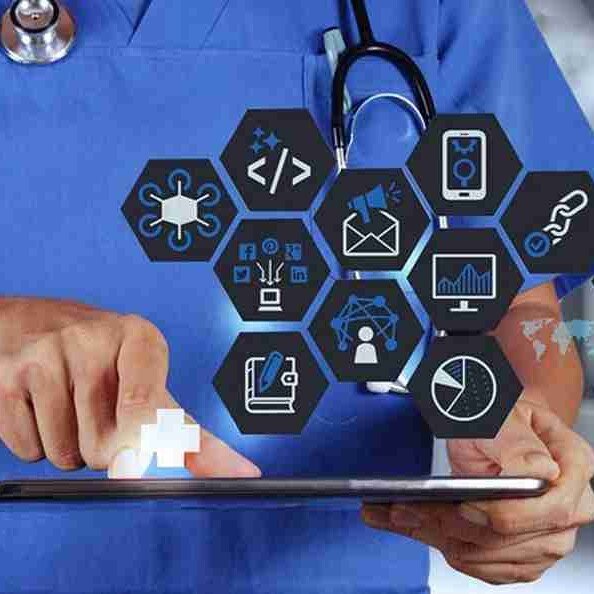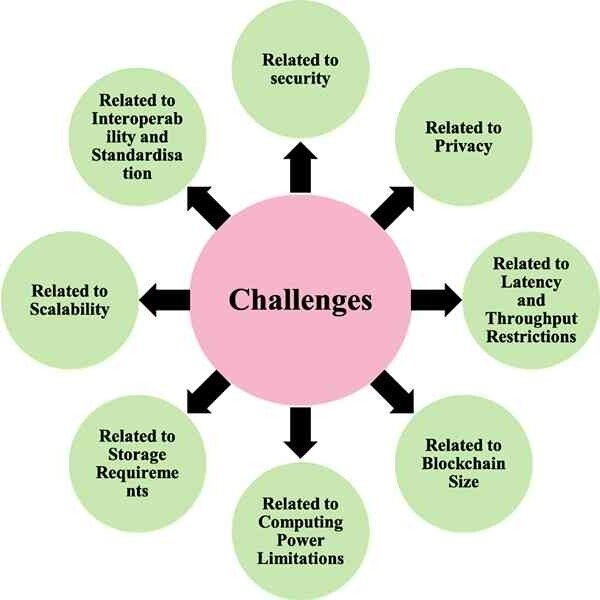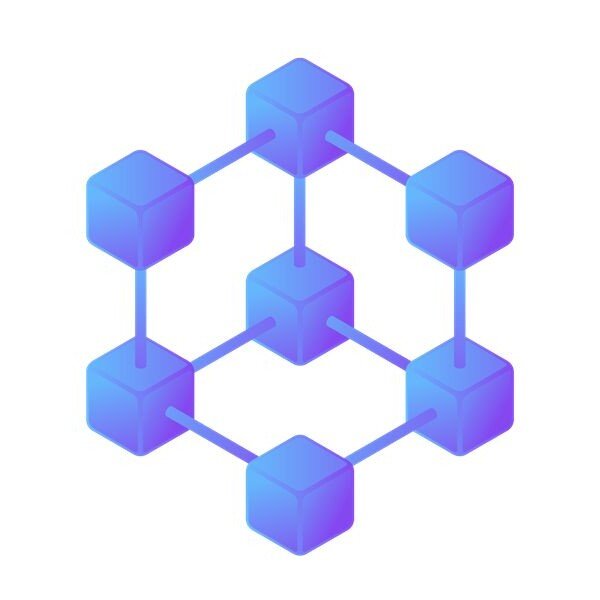Blockchain technology has the potential to revolutionize health care delivery.
Currently, this technology helps healthcare providers provide quality care to patients while also improving administrative management in healthcare facilities.
Blockchain technology has piqued the interest of several stakeholders in the healthcare industry in recent years, with many of them investing heavily in blockchain research.
The technology has numerous applications in healthcare, ranging from decentralizing health data management to improving its quality and security, reducing therapeutic errors, and so on.
1. Simplified healthcare workflow
Thanks to the distributed ledger technology in blockchain, healthcare stakeholders can all stay updated on patient data, eliminating the need for multiple intermediaries that natively watch out for health data security during sharing and transfer, data completeness, etc. in a conventional healthcare setting.
Blockchain maintains an accurate record of the financial statements, streamlining the process of accounting and reporting in a health organization.
These use cases improve workflow and are cost-effective, safe, and transparent, as all concerned parties share safe and unaltered data.
2. Improved health research and insight into patient care
Health researchers can analyze patient data, assess the trend of a disease or the impact of a procedure on a patient population through verified access to their data, provide a reliable data source, and avoid problems with the use of false results while complying with data regulations.
These data, being immutable and easily verifiable, can be trusted for this research.
Blockchain platforms are highly interoperable; hence, a large pool of patient data can be collated from different sources and analyzed, and insights can be drawn to improve healthcare and patient outcomes moving forward.
3. Health record keeping
Blockchain technology is an excellent platform for record-keeping in healthcare.
Healthcare systems around the world struggle with problems of data silos, as healthcare providers have an incomplete view of patient data.
Through its distributed ledger technology, blockchain helps in keeping electronic records, sharing patient health data, managing health insurance, and observing organizational administrative duties.
It can unify electronic health records from different organizations while ensuring the information is legitimate and preserves users’ privacy.
Blockchain also ensures that only permitted parties can gain access to personal data.
4. Patient monitoring – Wearables and IoMT
Many hardware technologies have been developed that effectively measure patients’ vital signs in the comfort of their homes or hospital beds.
These devices provide health professionals with data on fluctuations in patients’ vital signs and alert them in case of emergencies.
These technologies, combined with blockchain, operate in a secure, transparent, and coordinated manner.
The decentralized nature of blockchains combined with IoMT devices makes them interact directly without routing through a centralized server.
These prevent cyberattacks like DDoS and man-in-the-middle.
5. Health data transfer and access
Healthcare is currently crippled by fragmented and siloed patient data as health providers struggle to compile patient data into a whole.
Health data sharing tries to combat this but falls prey to access to patient data by authorized individuals in destination organizations.
Blockchain helps to combat this by providing a secure way to transfer health data while also making sure only individuals in need of the data, e.g., not all physicians but patients attending physicians, can access it.
An example is Akiri, a private networking service that enables the secure and compliant transport of health data.
This they achieve by embedding security in every transfer, managing detection, authorization, and data compliance, as well as authorizing users with appropriate rights to communicate or transfer health data.
6. Health data security and transparency
Security is a major issue in the healthcare industry.
The block architecture of blockchain is a security feature of immense advantage, especially in the healthcare industry, where patient data is always a target for hackers and malware.
The transparency of blockchain does not, however, compromise patient privacy; patient identity and other sensitive details are concealed with hashing.
The decentralized data structure allows health providers and physicians, as well as patients, to share the same information quickly and safely.
An example is Medicalchain, a platform that uses blockchain technology to securely manage health records for a collaborative, smart approach to healthcare.
The platform protects patient data from unauthorized access and features time-based access to health records, which is useful for remote consultations through telemedicine.
7. Data interoperability
Physicians collaborate on patient care and often need to share these patients’ data.
This is to contribute to diagnostic precision and arrive at the best management plan for the patient.
On an organizational scale, collaboration boosts a cost-effective ecosystem in a healthcare system.
Blockchain enables various physicians and organizations to effectively share patient and user data with a commonly distributed leader.
8. Professional credential exchange and verification
The immutability of blocks on blockchain platforms makes them suitable as a means to verify healthcare personnel.
Health professionals can be profiled and indexed on a blockchain platform that tracks their experience level, a piece of very useful information for medical institutions and organizations in streamlining hiring processes.
An example is ProCredEx which harnesses the power of distributed ledger technology (DLT) to establish the provenance of data, rendering it immutable, and ensuring its permanent traceability.
The result is a secure and trusted environment where user data exchange is reliable.
They also boast of a platform that ensures the data security and industrial scalability necessary to power healthcare credentialing transactions.
Other examples include Hashed health.
9. Breakthrough in Genomics
Human genetic information, a very sensitive and private data, has seen many use cases in research towards improving human health on a large scale.
This applies to individualized care as well—personalized medicine.
Blockchain has been used to encrypt DNA data, thereby providing a reliable source for DNA data as well as shrouding other patients’ data from the DNA data before sharing it for research purposes.
An example is Encrypgen, a blockchain company that de-identifies raw DNA data files by stripping them away from names, emails, and other sensitive information, providing DNA data buyers with DNA coding suitable for their projects.
Another example is DOC.ai.
10. Drug supply chain management
Healthcare is faced with several challenges in drug management, including the authenticity of drugs.
Blockchain is being used in pharmaceutical supply chain management because of its decentralized nature as well as its immutable record-keeping and monitoring from the point of drug manufacture and at each stage through the supply chain.
This enables customers to trust the drugs they are buying, fishing out counterfeit drugs that are dangerous to human health.
A good example is MediLedger, a blockchain protocol that enables companies to verify the authenticity of drugs as well as drug expiration dates.
Other examples include Chronicled and Curisium.
Obisesan Damola
Damola is a medical doctor who has worked in the Nigerian healthcare industry for a little over 3 years in a number of primary, secondary, and tertiary hospitals. He is interested in and writes about how technology is helping to shape the healthcare industry. He graduated from the College of Medicine, University of Ibadan, the foremost medical training institution in Nigeria.



